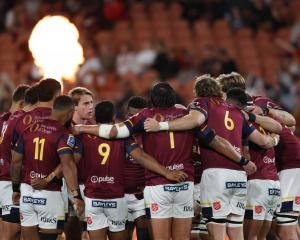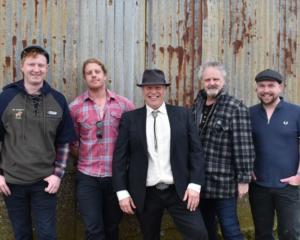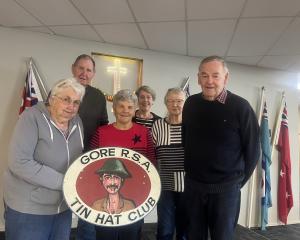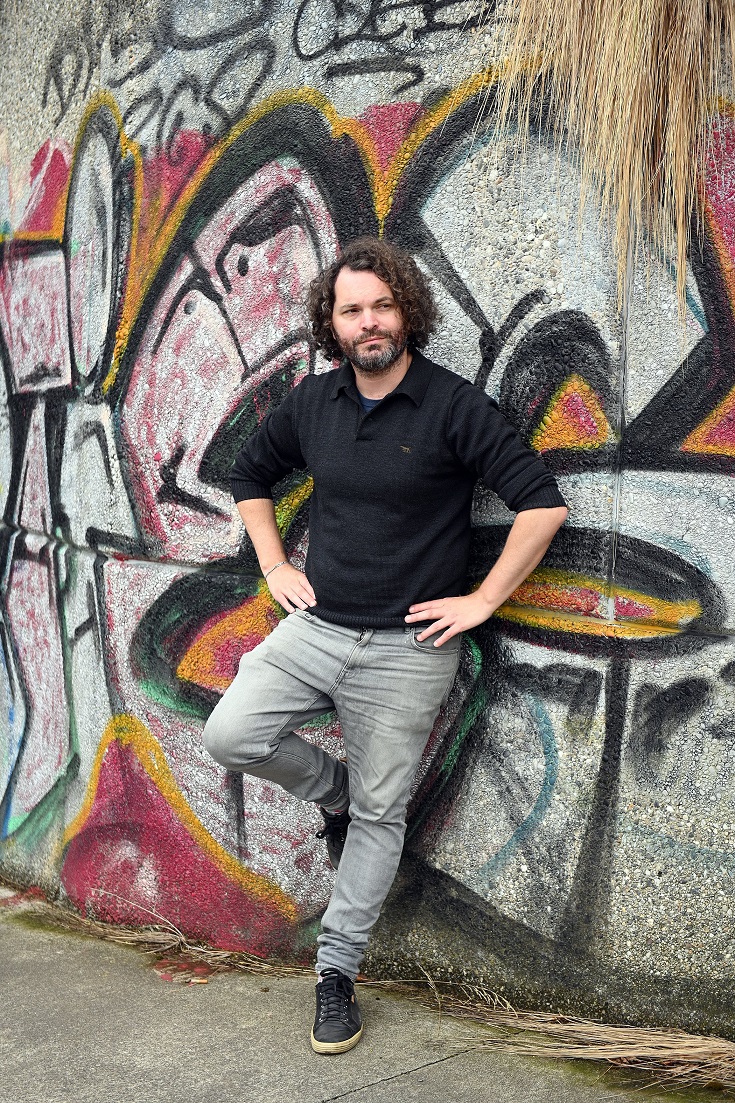
Walking around Dunedin, composer Dr Simon Eastwood often gets a sense of deja vu.
He puts the feeling down to living in the city when he was a 5-year-old. Now back in Dunedin decades later as the University of Otago Mozart Fellow, Eastwood is finding the city both familiar and new at the same time.
"I’ve got these extremely vague impressions of the city from my youth. It’s very hard to pin down specifics. In a way, it’s coming full circle."
Moving south from Wellington for a year is a big shift for Eastwood and his partner, but an exciting one. His parents returned to Dunedin two years ago.
"It’s great to spend more time with them. Help in the garden, things like that. I know a lot of the previous fellows who have hung around afterwards, as it were, as they liked it so much."
Eastwood describes the fellowship as the "dream job" for a composer.
"It’s something I’ve always wanted to do, at some point. I’m very honoured to be included in the list of recipients."
While he describes himself as a composer when asked, in reality it is only a small part of what he usually does.
"You only spend 10% of your time composing, but you say that because composing is the core of what you are about, but it might not be what you do most of the time. This is the opportunity to flip that."
His biggest plan for the year is to compose a piano trio with violin and cello. The chance arose after he had the opportunity to read fragments of unfinished music through Chamber Music New Zealand’s Composer Woodshed programme with NZTrio.
"I’d like to do something long and substantial with it. I’d like to finish those sketches. They talk about different rhythm ideas. A lot of my music over the years has been quite textural ... so I’ve been trying to add some more movement."
He is also collaborating with visual artist Lisa Munnelly on a piece and writing some percussion music as well.
"There are a couple of little projects. The seeds are planted, so we’ll see where they go."
But it is also important for him to leave space to enjoy projects that just come up as well as enjoy the city.
"There are a lot of great musicians here who I’d love to do things with. I’ve met a few of them. I’d like to do something with them as well.
"It’s a really great chance to, I guess, plug into the community and discover new things."
Eastwood comes from a musical family. Both of his sisters are musicians: one plays in a rock band and does sound engineering and the other is a jazz flautist.
"My granddad was a composer and music teacher. My parents are doctors, but they play, too."
However, it was not until his final years at high school that Eastwood began gravitating towards music as a career. He played bass guitar in high school and only picked up the double bass a few months before he went to university.
"It was quite a big learning curve, especially with the bow and classical rather than jazz. Before that I played clarinet and a bit of guitar and piano, badly."
He used to write "little tunes" when he was a child.
"As time goes on, you take it more seriously."
At that stage, he was fascinated with music.
"I wanted to have all the options I could. The social side of popular music is really attractive — you have your band, you hang out and it’s lots of fun."
He decided to study at Victoria University, doing an undergraduate degree in double bass and composition.
"I was also playing in bands and doing other things. The university music side nurtured my intellect a little more and my own personal music obsessions."
When the decision came to focus on one or other, composition won out.
"My composition marks were better than my playing. I do OK at playing, but I definitely do better at composing."
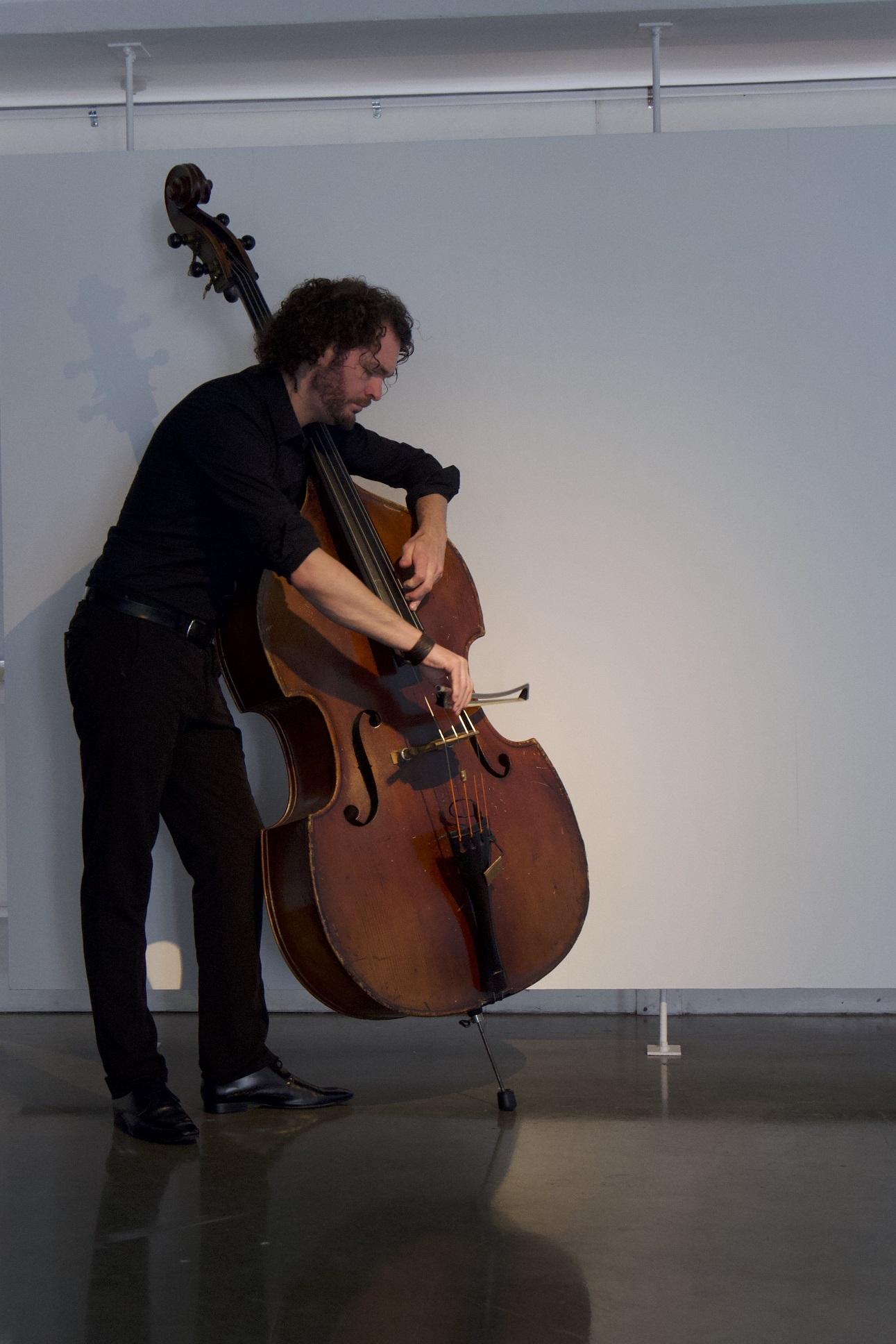
"I had the chance to go to festivals and do some residencies, meet lots of great people."
Eastwood has found a way to meld the social nature of popular music with that of his classical world by using collaboration.
"I’ve joined those two worlds in a sense. I’m doing my own thing and then I’m collaborating with someone, which is something I really enjoy as it can get lonely sitting in a room by yourself writing dots on a page."
It also enables him to learn about things he is not good like video, dancing or writing.
When he returned to New Zealand his undertake his doctorate, it became the basis of his thesis, "Plant this seed: Grow a garden", where he invited other artists to transform one of his pieces in their own way. He then composed new music in response to this and compared outcomes.
"I use music as a starting point or provocation. What I really like about that is how you can see how ideas evolve from person to person. If you know it’s there you can trace it back to the original piece. Often the end result can be very different to what you start with."
In 2019 he represented New Zealand at the International Society for Contemporary Music New Music Days in Estonia, where his piece, Interference, was performed by pianists Kadri-Ann Sumera and Talvi Hunt. His work Where the River Flows ... was performed by Corvus in New York’s Federal Hall following the 2019 "Composing in the Wilderness" programme in Alaska.
"Especially living in New Zealand it’s really easy to second guess yourself as we are in this bubble. Having something out there on an international platform and getting that audience
feedback is extraordinarily valuable, especially when they’re your peers."
His work has also been programmed by the New Zealand Symphony Orchestra, Stroma, and the Adam Chamber Music Festival among others.
In 2020, a collaboration with Munnelly — Resurfacing — was exhibited in Detroit and Wroclaw. In 2021, Grammy-nominated percussionist Justin DeHart included his set Silver Wind, Golden Earth, White Water on Landfall, a collection of New Zealand percussion music released by Rattle Records.
He is now looking at moving on from that particular approach.
"I’ve been doing it for a while now. You hang around, you jam, you socialise and take it from there."
More recently Eastwood has been looking at how visual art and sound can interact in a physical way.
"We haven’t figured out exactly how yet — it’s in process."
Having goals is important to Eastwood, who is used to the "freelance juggle" of balancing teaching, playing and composing, but he also hopes to take people’s advice to enjoy his time as a fellow as well.
"It’s not that often you have this sort of luxury and space and you want to make the most of it. It’s a great opportunity to reconnect with Dunedin."
Part of that has been checking on the local music scene, taking in jazz gigs and visiting the Crown Hotel.
"It’s been great to see the musical life of the city."
Teaching has been a big and necessary part of his life until this year. He teaches double bass, children’s conducting, music technology and theory and, occasionally, swimming.
"I was a pretty good swimmer at school. It was my first job when I left school. I kept it up to pay the bills."
He enjoys teaching and the feedback from students.
"They have such active minds. They are inspiring. Teaching is a way of passing on what I’ve learnt from my teachers. It’s enriching talking about music with anyone really, even a 5-year-old."
Eastwood is also the president of the Composers Association of New Zealand.
"It is an organisation that has helped me a lot over the years. They sent me to a festival in Korea in 2008 and also sent me to Estonia in 2019 ... it’s a charitable organisation, a group of composers working for composers.
"There comes a time when you want to contribute. It’s really good to be able to give back."
The group is a good way to promote discussion about music and what it can and should be in New Zealand.
"There are so many ideas about that and it is also good to link with other organisations internationally. It’s a global exchange of different ideas."

